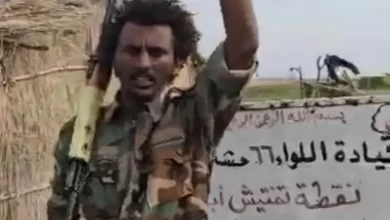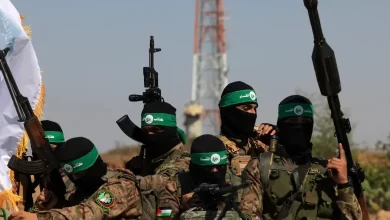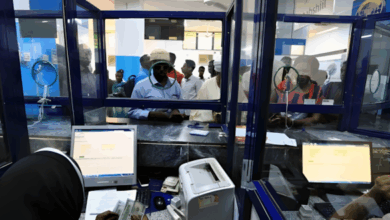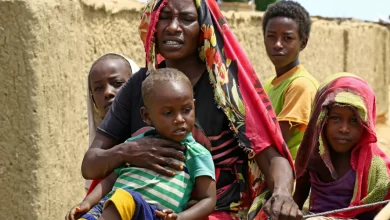Former foreign minister: the proof gave the Muslim Brotherhood their power and money
and made them dream of returning to rule the country
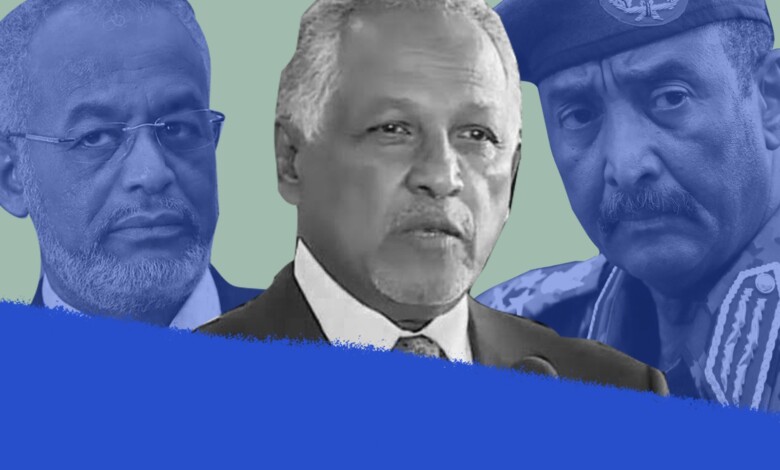
Former foreign minister Ibrahim Taha Ayoub downplayed the importance of Burhan’s participation in the UN General Assembly meetings, expecting that he would return to the country without achieving any gains. The former foreign minister told Radio Dabanga that Al-Burhan is in a historical impasse due to its siege by Rapid Support on the one hand and the Muslim Brotherhood forces on the other. They are behind him and are ready to eliminate him as soon as he takes one step towards a negotiated solution. He expressed his surprise at Al-Burhan’s participation in the meetings of the UN General Assembly to address legitimate presidents, at a time when the proof of the democratic transition that was about to be achieved in Sudan had lapsed and he had prepared the greatest revolution led by the Sudanese people. He asked what achievements the proof will present during the meetings Is it launching vicious attacks on human rights and killing young people during the dispersal of the sit-in of the general command Or about enabling corruption in all fields The massive destruction of infrastructure,health, educational and cultural components He said that the proof gave the Muslim Brotherhood their power and money back and made them dream of returning to rule the country in order to complete the fragmentation of the country and tear its social fabric by raising the word of racism and tribalism. Ibrahim Taha Ayoub explained to Radio Dabanga that most of the neighboring countries believe that they have interests in Sudan, and their intentions are not devoid of purpose, and some prefer the continuation of Sudan weak and torn. He stressed the need to call on all political and civil forces to reach a political solution through the Sudanese-Sudanese dialogue and the national forces ‘ efforts to unify their visions and programs to reach the peace sought by the Sudanese people, not those solutions that come from abroad. Adel khalafallah, spokesman for the Socialist Baath Party, expected that during his participation in the UN General Assembly meetings, Burhan would face an international position rejecting the war and adhering to direct negotiations leading to a permanent cessation of the war and measures to address its remnants. Adel Khalfallah told Radio Dabanga that the demonstration will seek to mobilize international public opinion to criminalize the Rapid Support forces and classify it as a terrorist organization, most likely these claims will not find any response. He said that the international positions at the previous Security Council meetings tended to acknowledge the occurrence of mutual crimes of the two sides of the war, and he expected that the proof would not succeed in obtaining the unilateral condemnation of the Rapid Support forces. He expected that a strong international public opinion would be formed during the meetings to stop the war, in the presence of proof, which would reduce the chances of maneuvers, and put the rapid support to a serious test about its consent to negotiations. He pointed out that all the speeches of the leaders of the states before the General Assembly are in the direction of rejecting the war and demanding to stop it, pointing out that the Jeddah platform finds wide international support. Adel told Radio Dabanga that Burhan’s participation in the meetings comes after a dangerous development, represented by a trend to form a caretaker government and the wave of quick support for the formation of a parallel government, which threatens the risks of Partition and civil war. It has been widely rejected by the public. He explained that Al-Burhan’s participation in the meetings of the UN General Assembly comes after his visit to six countries in order to confirm his legitimacy as president of the sovereignty Council and mobilize support for the Army during the ongoing war. Adel khalafallah said that the countries visited by Al-Burhan confirmed the rejection of the continuation of the war, and the neighboring countries of Sudan agreed to stop the war, unite efforts and initiatives in the Jeddah platform and directly enter into a permanent ceasefire.

